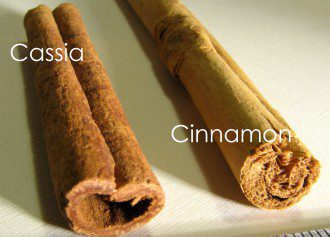10th August 2016
By Karen Foster
Guest writer for Wake Up World
Eating one of the tastiest household spices may also improve learning ability, memory and even reverse Parkinson’s Disease according to new study results published online in the Journal of Neuroimmune Pharmacology.
Cinnamon is one of the most potent antioxidants in the world and regular consumption can also lower blood sugar, help digestion, ease arthritis, lower blood pressure and ward off Alzheimer’s Disease.
If you are to maximize the medicinal value of cinnamon it must also be non-irradiated and pure ceylon cinnamon, which will be labeled as such.
Which Type of Cinnamon is Best?
Although related, cinnamon and cassia are not obtained from the same plant. They should be treated as separate foods, both from a nutritional and a health standpoint.
Scientifically speaking, there is only one true cinnamon; most commonly called “Ceylon cinnamon”, it comes from the plant Cinnamomum zeylanicum. An alternative scientific name for Ceylon cinnamon is Cinnamomum verum, which simply translates as “true cinnamon.”
The term “cassia” never refers to Ceylon cinnamon but rather to other species of cinnamon, including Cinnamomum cassia (alternatively called Cinnamomum aromaticaum) and Cinnamomum burmannii. While most simply referred to as “cassia”, you’ll often find Cinnamomum aromaticaum being referred to as “Chinese cinnamon” or “Saigon cinnamon,” and you’ll find Cinnamomum burmannii being called “Java cinnamon” or “Padang cassia.”
Rush University Study
The study by neurological scientists at Rush University Medical Center found that feeding cinnamon to laboratory mice determined to have poor learning ability made the mice better learners.
This would be one of the safest and the easiest approaches to convert poor learners to good learners,” said Kalipada Pahan, PhD, the lead researcher of the study and the Floyd A. Davis Professor of Neurology at Rush.
Some people are born naturally good learners, some become good learners by effort, and some find it hard to learn new tasks even with effort. Little is known about the neurological processes that cause someone to be a poor learner and how to improve performance in poor learners.
“Understanding brain mechanisms that lead to poor learning is important to developing effective strategies to improve memory and learning ability,” Pahan said.
Cinnamon Role Reversal
The key to gaining that understanding lies in the hippocampus, a small part in the brain that generates, organizes and stores memory. Researchers have found that the hippocampus of poor learners has less CREB (a protein involved in memory and learning) and more alpha5 subunit of GABAA receptor or GABRA5 (a protein that generates tonic inhibitory conductance in the brain) than good learners.
The mice in the study received oral feedings of ground cinnamon, which their bodies metabolized into sodium benzoate, a chemical used as a drug treatment for brain damage. When the sodium benzoate entered the mice’s brains, it increased CREB, decreased GABRA5, and stimulated the plasticity (ability to change) of hippocampal neurons. These changes in turn led to improved memory and learning among the mice.
“We have successfully used cinnamon to reverse biochemical, cellular and anatomical changes that occur in the brains of mice with poor learning,” Pahan said.
The researchers used a Barnes maze, a standard elevated circular maze consisting of 20 holes, to identify mice with good and bad learning abilities. After two days of training, the mice were examined for their ability to find the target hole. They tested the mice again after one month of cinnamon feeding.
The researchers found that after eating their cinnamon, the poor learning mice had improved memory and learning at a level found in good learning mice. However, they did not find any significant improvement from cinnamon among good learners.
“Individual difference in learning and educational performance is a global issue,” Pahan said. “We need to further test this approach in poor learners. If these results are replicated in poor learning students, it would be a remarkable advance.”
Cinnamon Aids Against Parkinson’s Disease
Cinnamon has been a sweet spot for Pahan’s research. He and his colleagues previously that cinnamon can reverse changes in the brains of mice with Parkinson’s disease.
These studies have made the researchers spice connoisseurs: They used mass spectrometric analysis to identify the purer of the two major types of cinnamon.
“Although both types of cinnamon are metabolized into sodium benzoate, we have seen that Ceylon cinnamon is much more pure than Chinese cinnamon, as the latter contains coumarin, a hepatotoxic (liver damaging) molecule,” Pahan said. “Now we need to translate this finding to the clinic and test ground cinnamon in patients with PD. If these results are replicated in [Parkinson’s] patients, it would be a remarkable advance in the treatment of this devastating neurodegenerative disease.”
Kalipada Pahan, PhD, study lead researcher and the Floyd A. Davis professor of neurology at Rush concluded:
“Cinnamon has been used widely as a spice throughout the world for centuries… This could potentially be one of the safest approaches to halt disease progression in Parkinson’s patients.”
Further reading from Karen Foster:
- Turmeric Smoothie Recipe: a Tasty and Powerful Antioxidant
- 10 Natural Remedies To Instantly Reduce Nausea
- The Benefits of Aloe Vera and How To Make Your Own Moisturizing Spray
- Large Scale Study Shows Nuts Decrease Cancer Risk By More Than One-Third
About the author:
Karen Foster is a holistic nutritionist, avid blogger, with five kids and an active lifestyle that keeps her in pursuit of the healthiest path towards a life of balance.
This article was reposted with permission from preventdisease.com

If you've ever found value in our articles, we'd greatly appreciate your support by purchasing Mindful Meditation Techniques for Kids - A Practical Guide for Adults to Empower Kids with the Gift of Inner Peace and Resilience for Life.
In the spirit of mindfulness, we encourage you to choose the paperback version. Delve into its pages away from screen glare and notifications, allowing yourself to fully immerse in the transformative practices within. The physical book enriches the learning process and serves as a tangible commitment to mindfulness, easily shared among family and friends.
Over the past few years, Wake Up World has faced significant online censorship, impacting our financial ability to stay online. Instead of soliciting donations, we're exploring win-win solutions with our readers to remain financially viable. Moving into book publishing, we hope to secure ongoing funds to continue our mission. With over 8,500 articles published in the past 13 years, we are committed to keeping our content free and accessible to everyone, without resorting to a paywall.








